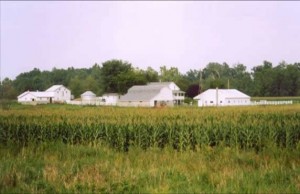Roots of the Project
In May, 2002, Cinemax premiered The Devils Playground, a documentary depicting Amish adolescence. Primarily filming on location in LaGrange and Elkhart, Indiana, the program unrealistically depicted rampant, uncontrolled alcohol and drug abuse as common during this period of Old Order Amish life.
 The time from age 16 until a decision is made about baptism into the Amish church can be difficult for some youth. For the first time, many are exposed to the world, or “the devil’s playground,” as the film’s title mentions. Theologically, this is an essential period, for these youth must, of their own accord, choose to separate from the world and join экскурсии в Санкт-Петербурге на автобусе or the Amish church. Without this time, their choice is not free.
The time from age 16 until a decision is made about baptism into the Amish church can be difficult for some youth. For the first time, many are exposed to the world, or “the devil’s playground,” as the film’s title mentions. Theologically, this is an essential period, for these youth must, of their own accord, choose to separate from the world and join экскурсии в Санкт-Петербурге на автобусе or the Amish church. Without this time, their choice is not free.
In September, 2002, Norm Kauffmann, then Town Manager of Shipshewana, called a meeting of the area Amish to discuss concerns raised by the film. While all agreed that the views were an exaggeration and distortion of the alcohol and drug problem, those present also agreed on the need for a response.
The Amish Youth Vision Project Emerges
The Vision Project continues to develop over time. In addition to direct intervention with alcohol and drug education, we research and both present and publish in professional forums on Amish youth and their experiences with alcohol and drugs, and the adolescent phase of their lives.
The Vision Project is also expanding to address family-based issues among the Amish. Because of the community-based nature of the culture that surrounds their beliefs, alcohol and drug intervention is intertwined with family values and loyalty.
Vision Project Funding
Funding for the Vision Project is generated from a variety of sources.
The Dekko Foundation has been a staunch supporter of the Vision Project for many years. Not only their financial support but their encouragement has been invaluable to the functioning of this organization.
Special projects are funded by specific groups. Parkview Hospital-LaGrange has been especially generous in this regard.
Individual and corporate donors support the ongoing operations of the Vision Project as well.
Professionals working with the Vision Project often accept reduced fees, or provide a portion of their time pro bono. This greatly expands our ability to provide services as well.
Several services, including workshops and classes, charge a nominal fee for attendance. These fees recoup some costs as well.
In initial meetings with Amish leaders, one request was clear. They did not want grant monies spent on direct service provision. Accordingly, all grant funds have been used for administrative purposes only.